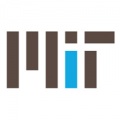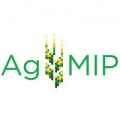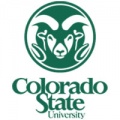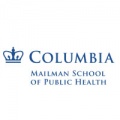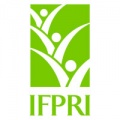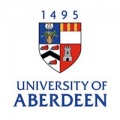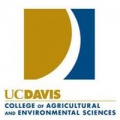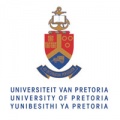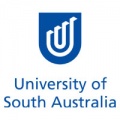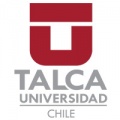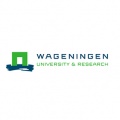News J-WAFS at MIT Convenes an International and Multi-Institutional Team of Researchers to Speed Food Systems Research Toward Climate Resilience
Scholars from twelve research institutions from around the world have joined the J-WAFS-initiated Alliance for Food and Climate Systems Transformation. The Alliance endeavors to stimulate convergence research aimed at innovative solutions to mitigate the climate impacts of food systems and significantly improve their resilience.
Andi Sutton, Abdul Latif Jameel Water and Food Systems Lab April 15, 2020
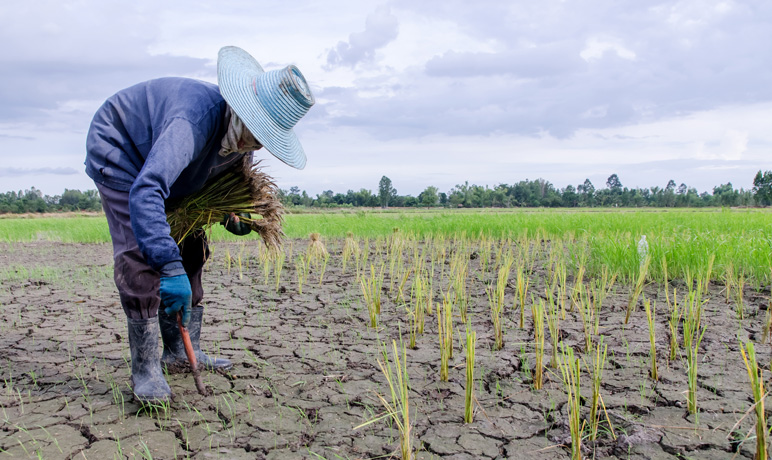
Shutterstock
Imagine all of the factors and actors involved in getting a bowl of rice to your table. As for the main actors, you might think about the farmers who grow the food and the retailer you bought it from. Environmental factors of water, sunlight, and soil might come to mind. What about agricultural policy and international trade agreements? The kind of seeds the farmer used and technological innovations that led to higher-producing strains of rice? What about farm practices to preserve soil health or the chemicals the farmer used to fertilized the field? Laws and regulations around land or water use? Or the business relationships between farmers and commodity traders, or between agricultural supply firms and farmers? If you were to examine how any of these elements of the food system interact, you would see how vastly complex, interconnected, and global in nature the food systems are that make your bowl of rice possible.
Next, think about climate change. How do you imagine our global climate crisis is affecting this complex web—the elements shaped by human activity as well as those physical, chemical, and biological interactions that work together to produce the food we eat across continents and cultures? Food systems are complex and adaptable, but they are fragile. The current disruptions to food supply chains caused by Covid-19 that you observe in your supermarket today have brought some of these fragilities to light in a sudden and unanticipated manner. Climate change will not affect our food supply chains with quite this speed, but over the coming years the accumulating impacts might be even more severe.
What can be done to mitigate our food systems’ negative environmental effects while also ensuring that they are resilient, at all levels, to current and future climate uncertainties? And, given the complexity of these food systems, what are the highest priorities for research-informed action?
Collaborating for Research-Informed Solutions
These are hefty questions that drive a global community of researchers who are currently exploring innovative ways to develop and scale solutions. However, this research often occurs in disciplinary siloes, and at times is disconnected from context, other aspects of the food system to which it is connected, and even from the experiences and decision processes of stakeholders. This siloed approach is not sufficient to tackle the vast and intersecting questions associated with how to make our food systems resilient to climate change. In contrast, convergence research, which meets complex problems with approaches that embody deep integration across disciplines, is needed. In particular, what is needed is convergence research that is pursued in close association with the stakeholders who both make decisions and are directly affected by how our food systems work, be they farmers, extension services, policy makers, international aid organizations, or consumers.
MIT’s Abdul Latif Jameel Water and Food Systems Lab is driven by the need—and expanding opportunities—for convergence research to speed productive advances in food systems policies, technologies, and practices related to climate change. With this objective in sight, in 2019 J-WAFS launched the Alliance for Food and Climate Systems Transformation, a multi-institutional and interdisciplinary collaboration. The Alliance now includes international representation across twelve research institutions that are leaders in food systems, agriculture, and innovation. The goal of the Alliance is to engage stakeholders along food systems value chains in order to better understand the knowledge gaps and research and innovation needs at the nexus of climate and food systems. By engaging researchers and stakeholders together, the Alliance aims to formulate new interdisciplinary research approaches that will be poised to deliver solutions that are realistic and implementable, and that will address the highest priority problems and challenges experienced by stakeholders across all food system sectors.
Alliance members bring expertise across a wide range of complementary research areas, including agriculture, bioengineering, nutrition, climate science and modeling, engineering, social science, policy, and innovation systems. Combining their collective research strengths to identify concrete pathways for discovery and innovation will give stakeholders and funders a source of trusted science to inform their decision making, now and in a climate-changed future.
A Global Team of Experts
MIT J-WAFS launched and is facilitating the strategic direction of this cross-institutional collaboration. MIT’s and J-WAFS’ approach to research and knowledge creation is particularly innovation oriented, and builds on an Institute-wide culture of cross-disciplinary collaboration in pursuit of solutions. Established under the Office of the Vice President for Research, J-WAFS was charged to work across the Institutes’ schools and departments to fuel research in water and food systems. The MIT researchers who are participating in the Alliance are currently applying climate modeling, data analytics, plant bioengineering, artificial intelligence, sensing, and technology development to climate and agriculture challenges. Many are leading J-WAFS-funded research projects.
Adding complementary areas of expertise are three institutions that are renowned in the study of the effect of climate change on the Earth’s dynamic living systems. At Scotland’s University of Aberdeen, experts in global food systems, carbon sequestration, and agricultural greenhouse gas emissions are working on climate change mitigation strategies for the global food system as part of ClimateXChange: The Scottish Climate Change Centre of Expertise. Participating faculty at Columbia University have extensive research depth in plant physiology, interactions between climate and carbon dioxide on all aspects of the food chain, and modeling.
Another European Alliance member is Wageningen University and Research, located in the Netherlands. Wageningen is a global leader in agricultural science and in knowledge exchange and innovation in agriculture. Researchers there employ an interdisciplinary, systems-based approach called Agricultural Knowledge and Innovation Systems (AKIS). AKIS is used to capture how knowledge is exchanged in a system, representing the ways in which agriculture-related technology, information, and innovation are generated, shared, and applied across regions or countries. It can include farming practices, businesses, authorities and governing bodies, etc., and aims to support farmers, advisers, and researchers alike to improve collaboration and knowledge transfer.
Two US land-grant universities are also part of the Alliance: Colorado State University and the University of California-Davis. The land-grant status of these three institutions provides a particular institutional focus on agriculture as well as extensive resources for agricultural field research. Researchers at these universities bring expertise in precision agriculture and climate-smart agriculture, pest management, plant breeding, genetic engineering and other crop breeding strategies, and more. Also joining from the US is IFPRI (International Food Policy Research Institute). IFPRI works in over 50 countries to provide research-based policy solutions to sustainably reduce poverty and end hunger and malnutrition in developing countries. The Agricultural Model Intercomparison and Improvement Project, based at Columbia University in New York City, is yet another collaborator and will bring research strengths in climate modeling.
In addition to the University of Aberdeen and Wageningen, four other institutions from outside the US are part of the Alliance, each of which contributes extensive local knowledge and stakeholder relationships across the countries and continents in which they reside. The Ethiopian Institute of Agricultural Research (EIAR) is a national research institute in Ethiopia with an extensive network across the horn of Africa. EIAR is connected with private sector partners, agriculture ministries and extension services, eight leading agriculture universities in Ethiopia, and CGIAR (Consultative Group for International Agricultural Research) centers across the world. Joining from South Africa is the University of Pretoria, which is a leader across southern Africa in agribusiness management, food and agriculture policy, as well as environmental economics and rural development. Another member of the team is the University of Talca in Chile. Chile is a major agricultural producer in Latin America, and Talca is located in one of the most productive agricultural areas in Chile, which is facing growing water challenges due to intensive production. Talca brings particular research depth in water and rural water governance, soil degradation, agricultural innovation and adaptation, and farmer-level policy incentives for behavior change. The University of South Australia houses experts from Australia and the Asia Pacific on water and food measurement, management and assurance under times of increasing complexity caused by a changing climate. Researchers from the Centre for Markets, Values and Inclusion (CMVI) along with experts from other areas are undertaking interdisciplinary projects inspired by global challenges and opportunities. Collectively, these projects deliver economic and social benefits to the region’s food producers and consumers, including through innovative technical solutions (e.g. soil moisture accounting), institutional adjustments and policy reform (e.g. land use and water policy). Working closely with governments at local, state, national and international levels, including through the World Bank, FAO, and the Australian Centre for International Agricultural Research (ACIAR), researchers are providing economic, accounting and governance advice based on expertise in business, water management and climate change impacts on food, water and energy security.
While the researchers involved in the Alliance have different research strengths and specialties, what unites them is the passion and drive to use research to address real-world challenges, and to engage across disciplinary boundaries in order to generate meaningful knowledge and innovation across the broad context of climate change and food systems.
For more information, contact Greg Sixt, Research Manager for Climate and Food Systems at sixt [at] mit.edu, or visit the initiative's webpage.
